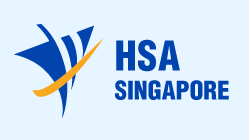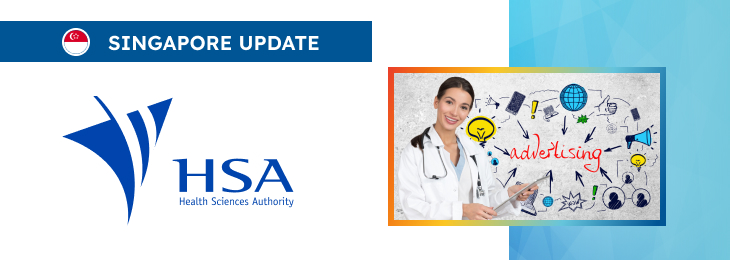The article provides a general overview of the existing legal framework for advertising healthcare products allowed for marketing and use in Singapore.

Table of content
The Health Sciences Authority (HSA), a Singapore’s regulatory agency in the sphere of healthcare products, has published a guidance dedicated to advertisement controls of health products and provisions of non-promotional information to the public.
The document provides an overview of the applicable regulatory requirements, as well as additional clarifications and recommendations to be taken into consideration by medical device manufacturers and other parties involved in order to ensure compliance.
It is also important to mention that the authority reserves the right to make changes to the guidance and recommendations provided therein, should such changes be reasonably necessary to reflect corresponding amendments to the underlying legislation.
Introduction and Background
The present guidance outlines the regulatory requirements governing the advertisement of health products under the framework introduced by the Health Products Act (HPA) and related legislation. The primary purpose of the document is to clarify the principles governing both the advertisement of health products and the dissemination of non-promotional, informative content about these products to the public.
It is important to mention that the scope of what constitutes an advertisement under this guidance is broad and inclusive, capturing any form of information dissemination that, either directly or indirectly, promotes the sale of a health product. This includes but is not limited to traditional print media, digital platforms, and emerging social media channels.
The guidance emphasizes the importance of compliance with the advertising requirements laid out in the legislation, designed to ensure that information regarding health products is communicated in a manner that is both accurate and responsible, without making misleading claims or the generation of unrealistic expectations among consumers.

Compliance Obligations and Legal Implications
The guidance further emphasizes the legal obligations of healthcare service providers to ensure that their advertising practices do not contravene established regulations. It provides a clear distinction between permissible advertisements for products that can be sold over the counter or without a prescription and those that are strictly regulated, such as prescription-only medicines and certain medical devices.
It also cautions against the promotion of any health product through educational materials intended for the public, which might inadvertently fall under the broad definition of advertising, thereby potentially leading to regulatory breaches.
Definitions and Parameters of Advertisement
In order to assist the parties involved in interpreting the relevant regulatory provisions and following the requirements set forth therein, the document also provides definitions of the key terms and concepts used in the context of advertising activities. In particular, the guidance provides definitions for “healthcare service providers” and what it means to “publish” an advertisement.
Regulatory Controls and Enforcement
As explained by the authority, the Health Products Act and associated regulations set forth specific controls over the advertisement of health products. These controls are extensive, covering the publication of any promotional material that could influence the sale or use of a health product.
The document emphasizes the importance of assessing the intention behind disseminating information on health products, indicating that even subtle or indirect promotions are subject to regulatory scrutiny.
Ethical Considerations and Public Safety
The guidelines pay special attention to the ethical considerations related to the advertising of health products, emphasizing the vital importance of public safety. This implies additional obligations for the parties involved, ensuring that all promotional activities are aligned with the overarching goal of protecting consumer health and maintaining the integrity of the healthcare industry.
Conclusion
In summary, the present HSA guidance provides an in-depth overview of the regulatory requirements in the sphere of advertising activities associated with healthcare products in the context of the existing legal framework. The document outlines the key considerations related to ensuring the information communicated to potential customers is not misleading, nor does it contain incorrect claims and statements regarding the effectiveness of the product in question or its safety when used for the intended purpose. The authority emphasizes the importance of ensuring the accuracy and reliability of the information communicated in the course of advertising activities.
How Can RegDesk Help?
RegDesk is a holistic Regulatory Information Management System that provides medical device and pharma companies with regulatory intelligence for over 120 markets worldwide. It can help you prepare and publish global applications, manage standards, run change assessments, and obtain real-time alerts on regulatory changes through a centralized platform. Our clients also have access to our network of over 4000 compliance experts worldwide to obtain verification on critical questions. Global expansion has never been this simple.

